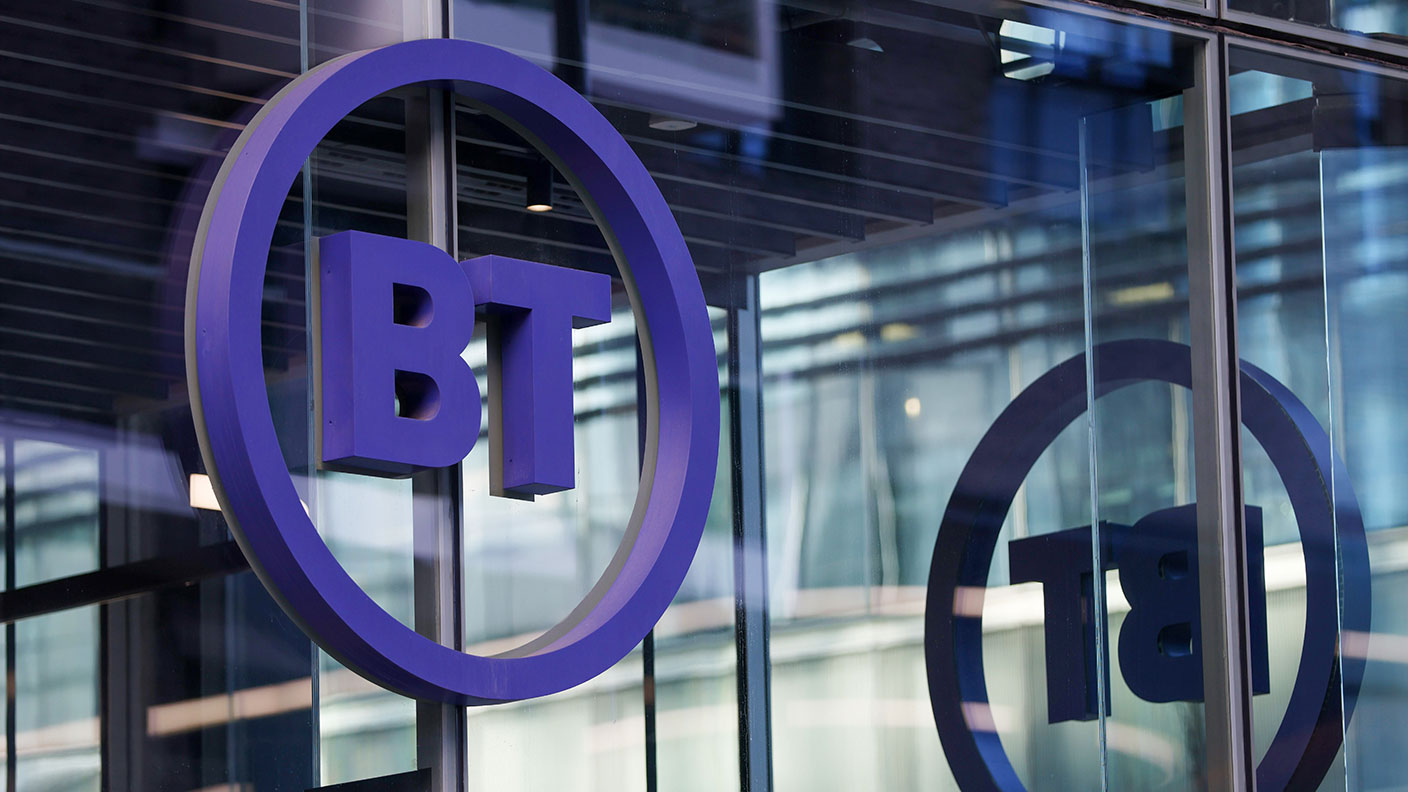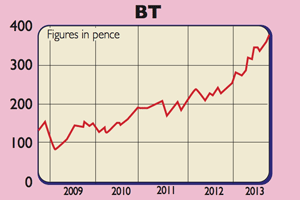Get the latest financial news, insights and expert analysis from our award-winning MoneyWeek team, to help you understand what really matters when it comes to your finances.
You are now subscribed
Your newsletter sign-up was successful
Want to add more newsletters?

Twice daily
MoneyWeek
Get the latest financial news, insights and expert analysis from our award-winning MoneyWeek team, to help you understand what really matters when it comes to your finances.

Four times a week
Look After My Bills
Sign up to our free money-saving newsletter, filled with the latest news and expert advice to help you find the best tips and deals for managing your bills. Start saving today!
Telecoms group BT has been in early stage talks to buy either EE, the wireless group owned by Deutsche Telekom and France's Orange, or O2. The latter used to be BT's mobile arm (under the name Cellnet), before it was spun off in 2001. Spain's Telefonica bought it in 2005 for £17.7bn. Telefonica is exploring options for its UK business, while EE had admitted it is considering merging with a fixed-line operator.
What the commentators said
Meanwhile, telecoms and TV are converging, added Alistair Osborne. The name of the game is "quadplay", or four services on one bill: mobile, fixed-line, broadband and TV. BT has accelerated the trend by buying TV programmes from Sky, notably Premier League football. BT is now only missing mobile, while EE and Telefonica have only a few broadband customers.
O2 could be had for just over £9bn, reckoned Lex in the FT. EE would cost more as it has more subscribers (25 million, compared to 22 million) and a better footprint in 4G technology say £11bn. But BT could pay in shares, or borrow and still have a reasonable debt load. Plenty of other quadplay deals are likely to follow. TalkTalk could be interested in whichever mobile network is left over, while Sky could consider investing in mobile if BT starts to draw customers away.
MoneyWeek
Subscribe to MoneyWeek today and get your first six magazine issues absolutely FREE

Sign up to Money Morning
Don't miss the latest investment and personal finances news, market analysis, plus money-saving tips with our free twice-daily newsletter
Don't miss the latest investment and personal finances news, market analysis, plus money-saving tips with our free twice-daily newsletter
BT, said Daniel Thomas in the FT, "is going to continue to shake up the once sleepy UK telecoms sector".
Get the latest financial news, insights and expert analysis from our award-winning MoneyWeek team, to help you understand what really matters when it comes to your finances.
MoneyWeek is written by a team of experienced and award-winning journalists, plus expert columnists. As well as daily digital news and features, MoneyWeek also publishes a weekly magazine, covering investing and personal finance. From share tips, pensions, gold to practical investment tips - we provide a round-up to help you make money and keep it.
-
 Should you buy an active ETF?
Should you buy an active ETF?ETFs are often mischaracterised as passive products, but they can be a convenient way to add active management to your portfolio
-
 Power up your pension before 5 April – easy ways to save before the tax year end
Power up your pension before 5 April – easy ways to save before the tax year endWith the end of the tax year looming, pension savers currently have a window to review and maximise what’s going into their retirement funds – we look at how
-
 BT is making progress and the dividend is back – but is it time to buy yet?
BT is making progress and the dividend is back – but is it time to buy yet?Analysis Investors in telecoms giant BT have seen dismal returns over the last 15 years. But there are signs that it is starting to turn things around, says Rupert Hargreaves. So should you buy BT shares?
-
 Football’s £5bn bonanza
Football’s £5bn bonanzaFeatures Competition between Sky and BT for rights to screen the footie has handed a £5bn windfall to the English Premier League. Can that really be a good deal? Simon Wilson reports.
-
Sell your telecoms shares – this merger madness is bound to end in misery
Opinion A lot of money will be spent in the telecoms tie-up frenzy – but much of it will be wasted, says Matthew Lynn.
-
Vodafone takes fight to BT
News Telecoms giant Vodafone has vowed to take on BT in the broadband and television market.
-
Company in the news: BT
Features BT is a company in rude health, but support for the share is waning, says Phil Oakley.
-
 Why higher interest rates could be good news for BT
Why higher interest rates could be good news for BTFeatures A rise in interest rates could deliver a nice boost to BT, one of Britain’s largest companies, says Phil Oakley. Here’s why.
-
BT’s football coup
Features BT has made an aggressive move into the pay-TV sector, snatching lucrative football rights from Sky and ITV. But has it paid too high a price? Simon Wilson investigates.
-
 Companies in the news: BT and Merlin Entertainments
Companies in the news: BT and Merlin EntertainmentsFeatures BT has staked its future on Premier League football, and the owners of Alton Towers are floating the company. Is it time to buy? Phil Oakley reports.

